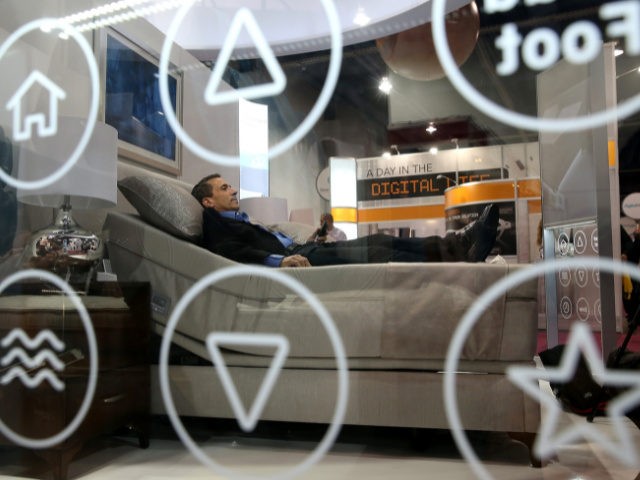Not everyone is feeling squeezed by inflation. Many of the biggest businesses in the U.S. have actually expanded their profit margins despite rising wages, supply chain disruptions, and rising shipping costs.
Consumer sentiment has been crushed by declining standards of living and falling real incomes due to high inflation. Small businesses are reeling under the pressure of higher prices and a record 88 percent say they’ve been hit by supply chain shortages.
But for many big businesses with the market power to pass on higher costs and competition from smaller competitors ground down by cost inflation, the good times have continued to roll. Many publicly traded companies have reported “fatter profit margins so far this year than they did over the same stretch of 2019,” according to the Wall Street Journal.
Nearly two out of three of the biggest publicly traded companies reported fatter margins than they did before the pandemic, according to Factset data cited by the Wall Street Journal. About 100 of these have raked in more than 50 percent more money in 2019 before the pandemic.
The large corporate profit margins during an inflationary period are just one more reminder the playing field between the elites and hard-working Americans is uneven.
Rising corporate profits could become politically charged as American workers and families are struggling with paying higher prices for everyday necessities, such as rent, gas, and food. Inflation has reached a 30-year-high, giving companies room to dramatically raise prices and profits.
By subscribing, you agree to our terms of use & privacy policy. You will receive email marketing messages from Breitbart News Network to the email you provide. You may unsubscribe at any time.
“Strong demand… has enabled companies to raise prices,” strategist at Deutsche Bank Parag Thatte told the paper.
A few of the massive companies reporting increasing profit margins are Ametek Inc, Sleep Number, and Tapestry Inc, which owns the Coach and Kate Spade brands.
Tapestry’s year-to-date profit margin has jumped to 14.5 percent from 10.7 percent for the same period in 2019, according to the Wall Street Journal. One way companies pass on higher costs is by keeping “price discipline,” which is executive-speak for not offering customers as many discounts.
“For Coach, the rise in [prices] isn’t really about inflation,” Coach’s CEO told the Journal. “It’s about reducing discounting.”
Ametek Inc, an aerospace and medical equipment company, has increased its profit margin to 23.4 percent from 22.8 percent in 2019. “In the third quarter, our pricing continued to more than offset inflation,” CEO David Zapico said. “We’re going to stay up ahead of inflation, and I expect that to be true next year.”
Sleep Number’s profit margins have also reportedly risen three percentage points since 2019. “Each time we’ve seen this [inflation] build, we’ve taken additional pricing,” finance chief David Callen explained.
Follow Wendell Husebø on Twitter @WendellHusebø

COMMENTS
Please let us know if you're having issues with commenting.